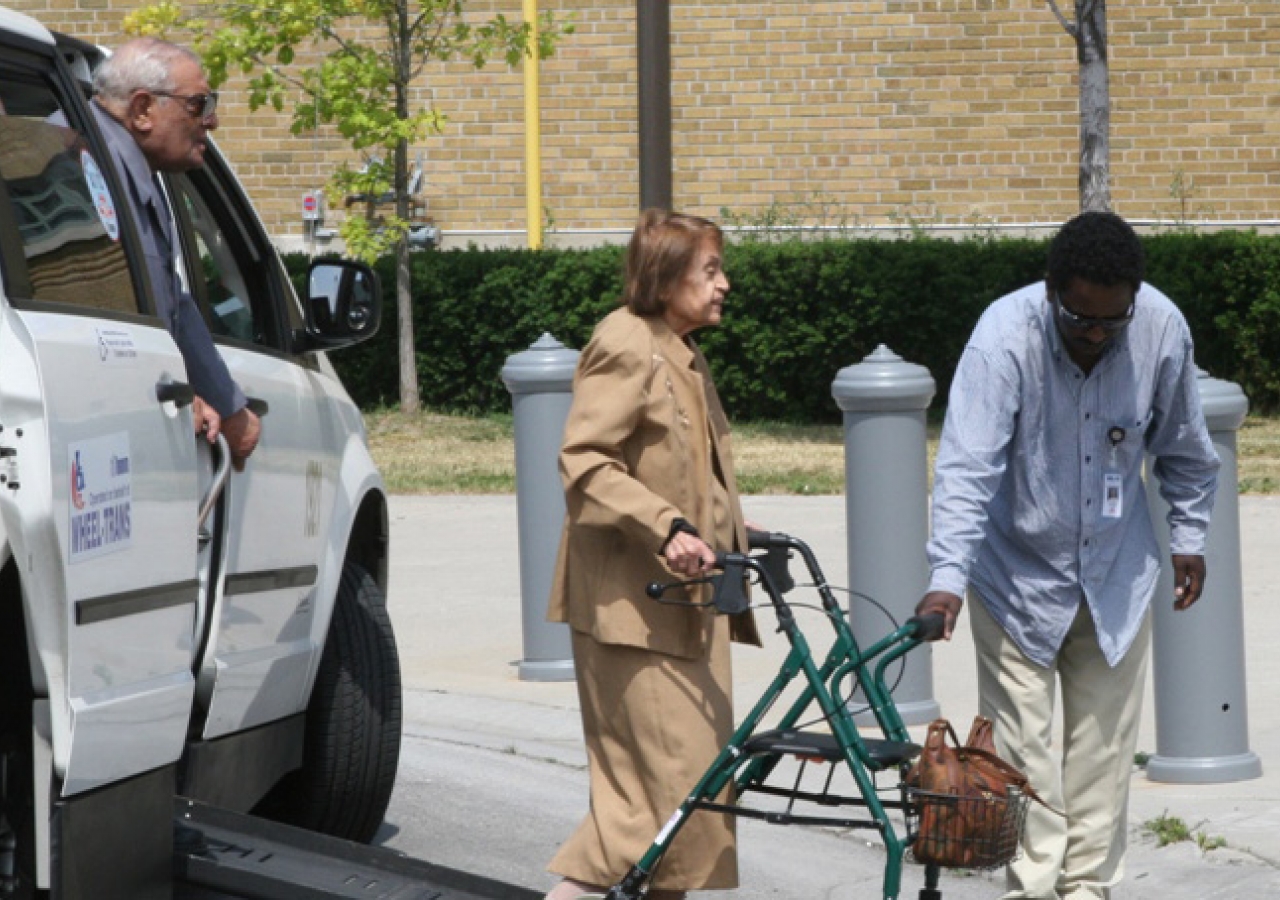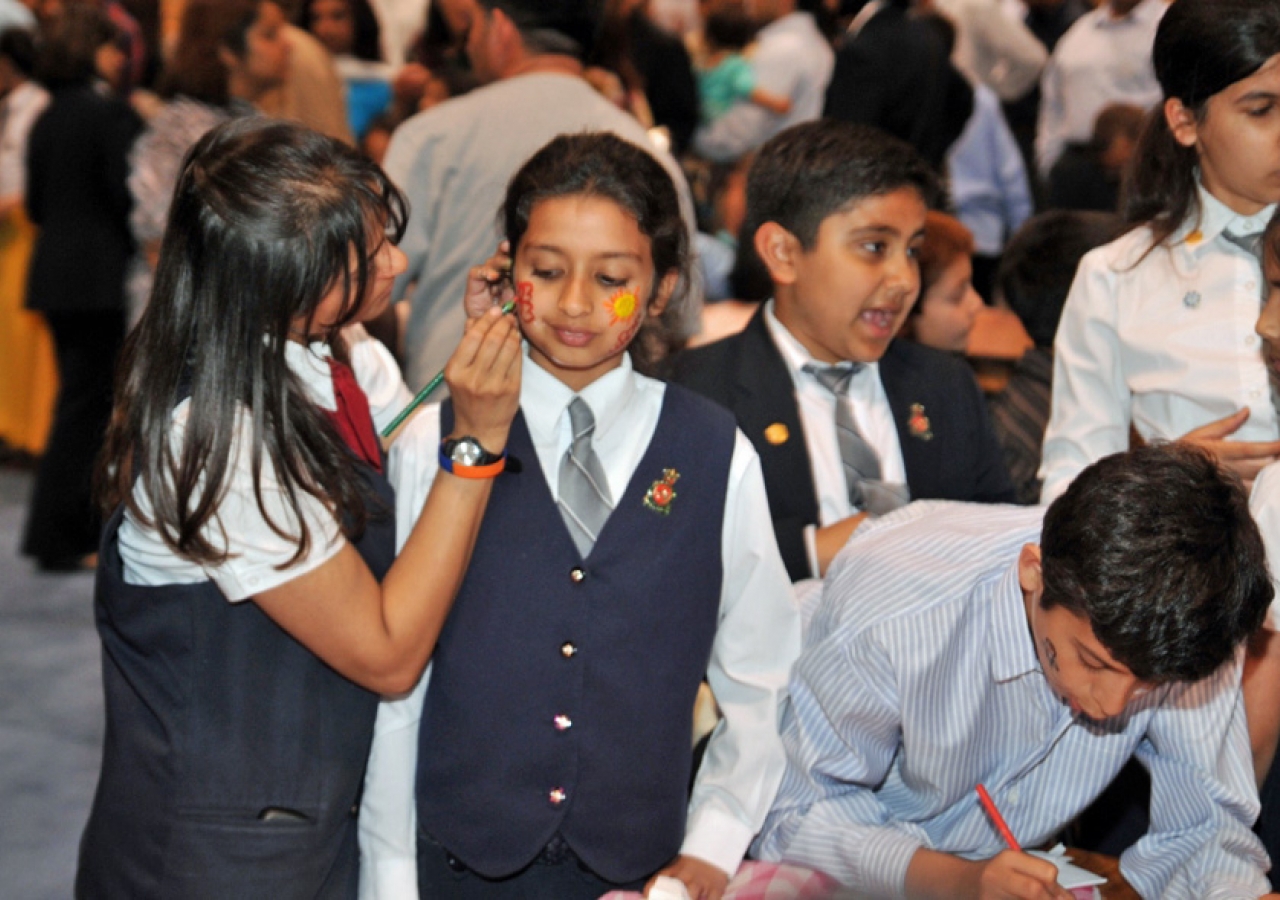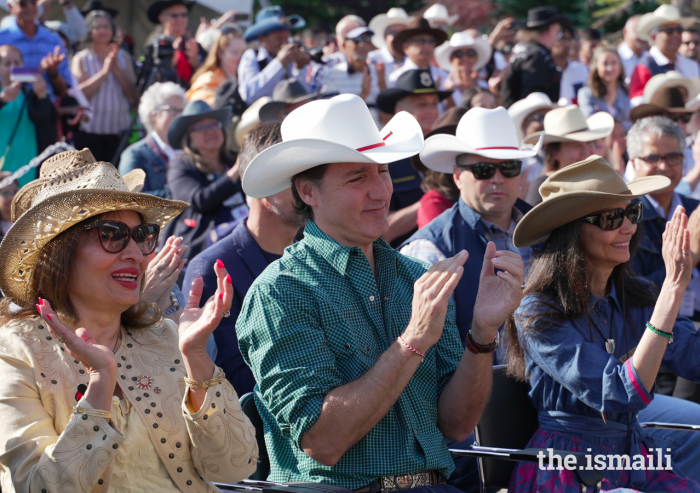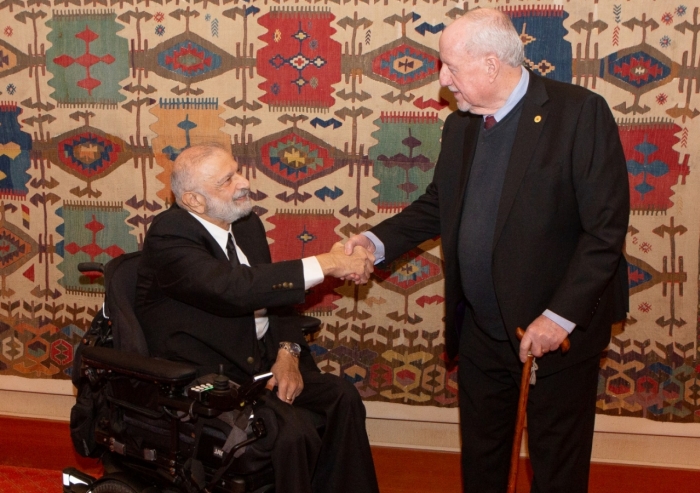After years of eager anticipation since the projects were formally announced in 2002, the Jamat across Canada came together to celebrate the Foundation Ceremony of the Ismaili Centre, the Aga Khan Museum and their Park, which are being established in Toronto.
 Jamati members in Toronto celebrate the Foundation Ceremony of the Ismaili Centre, Aga Khan Museum and their park by participating in traditional raas dancing. . Akber Devji
Jamati members in Toronto celebrate the Foundation Ceremony of the Ismaili Centre, Aga Khan Museum and their park by participating in traditional raas dancing. . Akber Devji“I am very proud to be a Canadian Ismaili Muslim,” said Sadiq Abdulla, a member of the Canadian Ismaili Muslim Youth Choir. “The establishment of the Centre, Garden, and Museum will serve as a physical manifestation of how our community has integrated itself [in Canada].”
The new Centre will become part of a network of Ismaili Centres established around the world, and will be the second in Canada after the Ismaili Centre, Burnaby, which is commemorating its 25th anniversary this year.
A variety of special events were held on Friday, 28 May, including a video of the Foundation Ceremony proceedings, and activities and entertainment for all members of the Jamat, followed by dinner, music and traditional dancing.
Ahead of the Foundation Ceremony formalities, the Canadian Ismaili Muslim Youth Choir performed for the guests gathered under tents erected at the Wynford Drive site. “The repertoire we selected comes from a variety of countries in which Ismailis and other Muslims live,” explained Noshin Samji, a member of the Choir.
 Tents were setup where members of the Jamat could have mendhi applied to their hands in celebration of the occasion. Alnoor Merali
Tents were setup where members of the Jamat could have mendhi applied to their hands in celebration of the occasion. Alnoor MeraliTheir performance spoke to the diversity and pluralism that characterises the Muslim world, and which the new Museum, the Ismaili Centre and their Park will showcase. “My favourite piece was Kad Procvatu Behari,” added Samji. “The harmonies are beautiful and the Bosnian lyrics, about the desire to reunite with the Divine, are so moving.”
The Choir also performed later that evening at the Direct Energy Centre, where the Toronto Jamat had gathered to celebrate.
Amidst the festivities, members of the Jamat reflected on the importance of the Ismaili Centres, and what it means for Canada to be home to another one of these landmark buildings.
“The creation of the Centre, I think, speaks volumes about how Canada truly has become our home,” said Alym Amlani of Vancouver, who noted that many members of the Jamat came to the country more than 30 years ago.
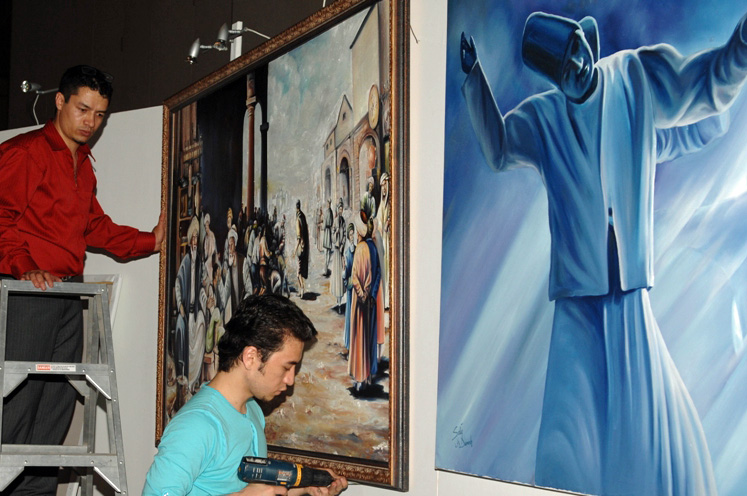 Thousands of volunteers across the country joined together to prepare for celebrations that occurred the week of Mawlana Hazar Imam's visit. Here, two volunteers hang artwork for the Jamat to enjoy. Alnoor Merali
Thousands of volunteers across the country joined together to prepare for celebrations that occurred the week of Mawlana Hazar Imam's visit. Here, two volunteers hang artwork for the Jamat to enjoy. Alnoor MeraliAbdulla adds that once complete, the projects will tell “the story of the Ismaili community, and how we have come to live and thrive in Canada.”
In Toronto, members of the Jamat were filled with excitement: “This is a type of project you can't find anywhere else in Toronto,” said 8-year-old Rayyan Esmail. “Hazar Imam wants not just Ismailis to visit the Museum and Park, but people of all different cultures and religions. The Park will have gardens, trees, fountains and pools for everyone to enjoy.”
The Aga Khan Museum – which will be built adjacent to the Ismaili Centre and share the Park with it – aims to become a place of education and cultural exchange, not only for Canadians, but for visitors from around the world. In addition to preserving the past, the Museum will speak to contemporary expressions that point towards the future.
Tabish Bhimani of Montreal has spent some time reflecting on the potential of the Museum and his hopes for it. “This is a long-time coming,” he said. “It's about more than artefacts and history; it's about arts and culture. It will add vibrancy and colour and will be a hub for different forms of expression to come together.”
The Museum will also become a place for people to develop mutual understanding. Saliha Hashuri of Montreal, who is originally from Afghanistan and who immigrated to Canada in the mid-1990s when she was about 11 years old, noted:
« Dans notre société, dans les années passées, le nom et la culture de l'Islam ont vraiment été mal interprétés. Je trouve qu'à travers le musée et tout ce qui va être présenté dans le musée qui démontre l'Islam du passé, de toutes les différentes cultures, ça va être plus facile pour les gens de voir c'est quoi, vraiment, l'Islam, que c'est une culture de paix. »
(“In our society, in recent years, the name and culture of Islam were very poorly understood. I think that through the Museum and through everything that will be presented in the Museum that illustrates the Islam of the past and [its] many cultures, it will be easier for people to see what Islam really is, that it is a culture of peace.”)
Hashuri hopes that through music and art, the Museum will help bring individuals together and provide hope for people like herself, that their culture will never be lost.
Noorin Fazal, a Secondary Teachers Education Programme (STEP) teacher from Vancouver, has taken part in the maintenance of the Ismaili Centre, Burnaby for more than 10 years, and has fond memories. She feels the Centre in Toronto will help to further shape her identity.
“When I speak about myself as an Ismaili Canadian, I can easily refer to the Toronto Centre as an example of how our community bridges din and dunya – faith and world. In every leaf, every artefact, every action, every breath, I can remember the values of Islam as my anchors, and I can live by them,” she said.
Lynley Lewis agrees. As the Conductor of the Vancouver Ismaili Muslim Youth Choir, he has participated in a number of concerts and workshops held at the Ismaili Centre, Burnaby: “It is my hope that the arts and cultural experience of the Jamat will continue to be broadened and that the efforts made towards building bridges with other communities will only help to extend mutual trust, cooperation and understanding between diverse peoples.”
It is this sense of optimism and contribution that will stay with the Jamat as the celebrations come to an end, and construction of the project moves forward.

